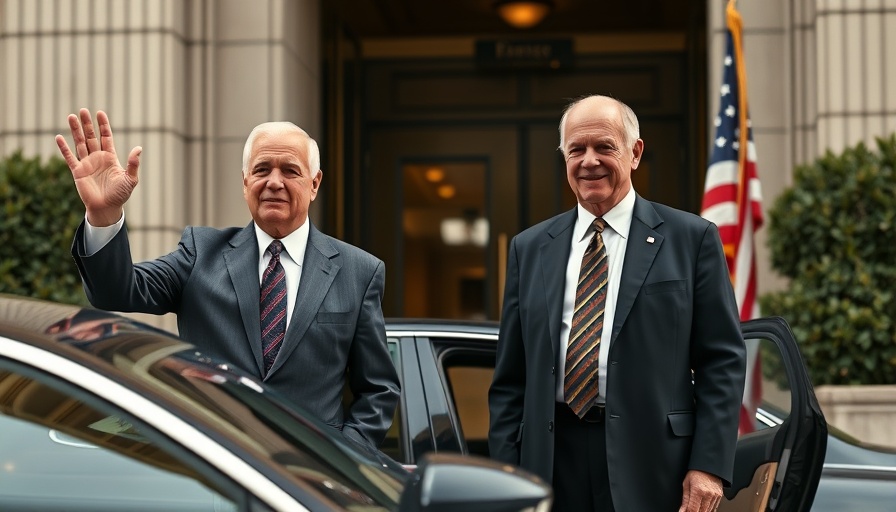
Netanyahu's Visit: A Remarkable Diplomatic Signal
On April 7, 2025, Prime Minister Benjamin Netanyahu of Israel made headlines with a high-profile visit to the White House. His sudden and honored welcome by President Donald Trump indicated a profound shift in international relations. Despite Israel's relatively small economy compared to giants like China and the European Union, this meeting signifies Israel's strategic importance within global politics. Netanyahu's invitation, spontaneous when compared to the deliberate approach other world leaders must undertake, sends a compelling message about his influence and the U.S.'s commitment to Israel.
What This Means for Global Leadership Dynamics
In the wake of Netanyahu's visit, the reactions from other world leaders will be telling. As countries like Canada and those in the EU scramble to renegotiate tariffs, Netanyahu’s privileged position raises questions about the current geopolitical landscape. Will this warm reception lead to greater concessions from U.S. leadership on tariffs or further support for Israel in conflicts? Such dynamics warrant close observation, especially from a Christian perspective that emphasizes the importance of Israel in biblical prophecy and contemporary politics.
The Challenges Ahead: Addressing Key Issues
The optimism surrounding the meeting did not obscure the underlying complexities. At the heart of the discussions were crucial topics including trade tariffs and regional threats. Netanyahu is urged to secure commitments on these fronts while also navigating fears about Turkish aggression towards Israel. For many believers and social justice advocates, these talks touch on underlying issues of human rights and the precarious situation for Christian communities in the Middle East. Recognizing how political agreements affect religious minorities is vital for socially conscious Christians keen on interfaith dialogue.
Future Predictions: A Watchful Eye on Developments
The implications of this meeting extend beyond immediate trade discussions. As the administration and Netanyahu set their agenda, those passionate about justice and peace must remain vigilant. Will Israel's strengthened ties with the U.S. lead to more military support? Or could it foster a more equitable approach regarding the Palestinian situation? Engaging in thoughtful dialogue about these outcomes is essential, ensuring that the rights and welfare of all communities in Israel and the surrounding regions are prioritized.
Empowerment Through Awareness
In this rapidly evolving political landscape, it's crucial for mission-minded individuals to stay informed. How does the interaction between U.S. policy and Israel’s ongoing struggles reflect your values and concerns? Recognizing the interconnectedness of faith and politics can empower believers to advocate effectively for justice, mercy, and peace in their communities and globally.
 Add Row
Add Row  Add
Add 








Write A Comment